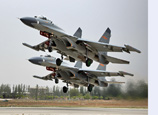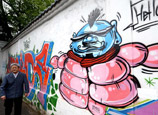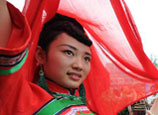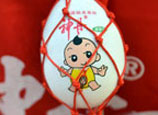
Many seek partnerships, mergers and acquisitions to build brands
Several Chinese pharmaceutical companies have been recognized by the overseas medical industry largely because of their partnerships with multinational giants.
Zhejiang Hisun Pharmaceutical Co set up a joint venture with US-based Pfizer Inc in September 2012. Simcere Pharmaceutical Group has established a partnership with MSD - known as Merck & Co in the US and Canada - and Bristol-Myers Squibb Co. Chinese biotech company Sino Biological Inc reached an agreement with Life Technologies Corp for protein product distribution and development worldwide. Shanghai Fosun Pharmaceutical (Group) Co has become the largest single shareholder of US-based medical care company Saladax Biomedical Inc.
Insiders say the collaborations are mainly driven by foreign drug-makers' desire to leverage their Chinese counterparts' distribution networks, local market knowledge and administrative resources to take a bigger market share, especially in the grassroots sector in China.
"On the flipside, the Chinese companies are also ambitious. They are eager to get international market access, realize technical upgrades and even build their brands through platforms abroad," said Zhang Fabao, a member of China Pharmaceutical Technology Organization Expert Committee.
"That can be seen as a shortcut for Chinese pharmaceutical enterprises to go global and a win-win strategy for both sides," he added.
Bilateral partnership
Hisun got a breakthrough in China's pharmaceutical industry by taking a controlling stake in the joint venture with Pfizer, the world's largest drug-maker by sales. Hisun has a 51 percent share in Hisun-Pfizer Pharmaceuticals Co, with a total investment of $295 million and registered capital of $250 million. Pfizer holds the remaining stock.
The joint venture focuses on the manufacturing and commercialization of branded generics, or high-quality and low-price off-patent medicines, in China and around the world. Hisun contributed a strong portfolio - 75 products, wide market reach in China and expertise in the production and commercialization of generics, while Pfizer offers, in addition to eight products, its research and development, marketing and manufacturing capabilities.
The operational revenue of the joint venture is expected to exceed $2 billion yuan, said Wu Xiaobin, country manager of Pfizer China.
The establishment of the joint venture will help transform Hisun into a branded generics company from an active pharmaceutical ingredients manufacturer. Pfizer should also be able to strengthen its presence in China, said Xu Lingni, an analyst at domestic brokerage China Investment Consulting Co.
Founded in 1956, Hisun is traditionally an active pharmaceutical ingredients producer and launched its overseas registration in 1989. Now, 80 percent of its API products are exported to more than 30 nations and regions.
"However, the added value of API is very low and decreasing. Hisun needs to upgrade its business. Entry into branded generics is a practical and profitable way," said Xu.
"The negotiations (between Hisun and Pfizer) took more than a year. It's really tough with rounds and rounds of bargains and discussions. We got stuck on the controlling stake," said a senior executive of Hisun, speaking anonymously.

















 Student holds doctor over medical fee dispute
Student holds doctor over medical fee dispute


![]()
